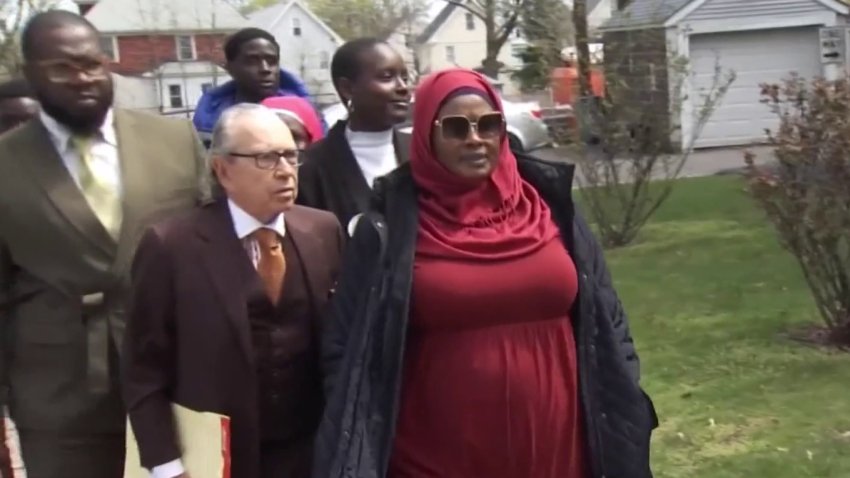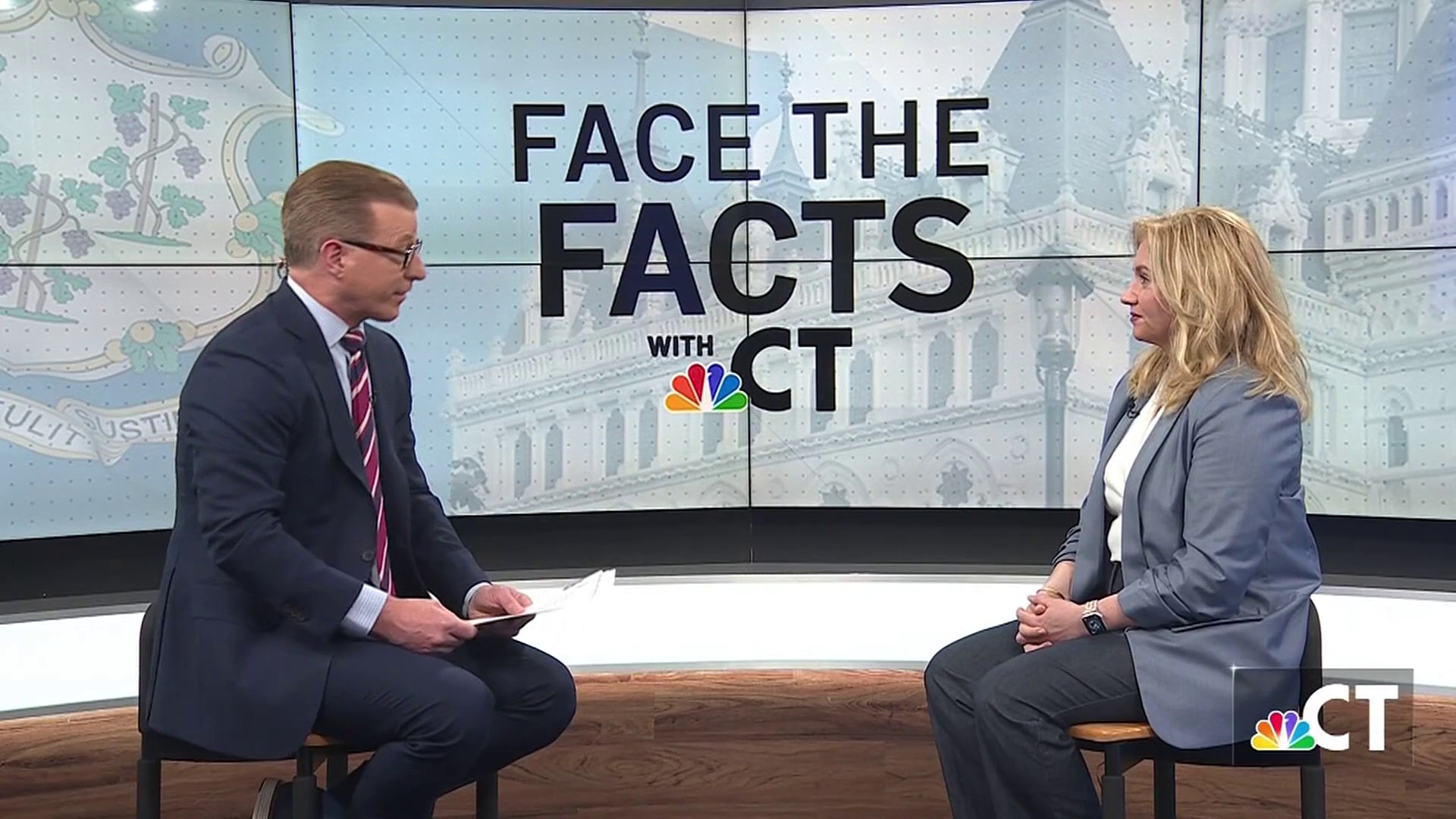There's a very emotional and complicated issue that continues to evolve here in Connecticut. Lawmakers are pledging to continue to re-evaluate the relationships between law enforcement and the communities they serve.
This comes as Trooper Brian North faces manslaughter charges in the shooting death of 19-year-old Mubarak Soulemane after a police chase that ended in West Haven in January 2020.
Stream Connecticut News for free, 24/7, wherever you are.
NBC Connecticut's Mike Hydeck spoke with Dr. Lorenzo Boyd about the issue. He's a criminal justice professor and also a former sheriff's deputy on the road when has was in Massachusetts.
Boyd is now the chief of diversity and inclusion at the University of New Haven.
Get top local Connecticut stories delivered to you every morning with the News Headlines newsletter.
Mike Hydeck: "So according to Governor Lamont and many others, transparency can improve trust when it comes to the relationship between officers and the public. Do you believe the Inspector General's report actually took a step in that direction?"
Lorenzo Boyd: "Absolutely, I think that just establishing the Office of the Inspector General is a step in the right direction. Ultimately, what people are looking for is levels of transparency and accountability. And there has been a little bit of mistrust, or a lot of mistrust, between certain communities and the police. And so to have an outside independent entity doing investigation, I think it's a good thing. It's certainly a step in the right direction."
Mike Hydeck: "So now, as we mentioned, you were a sheriff's deputy on the road. I'm not sure if you were involved in any police involved shootings at that point, but the state police union representative says Trooper North did his duty as he should. But if they believe that and the public believes something else, can this judgment drive an even bigger wedge between the public and police?"
Face the Facts
Face the Facts with NBC Connecticut goes beyond the headlines, asking newsmakers the tough questions, giving an in-depth analysis of the big stories.
Lorenzo Boyd: "Actually, I don't think that it will because ultimately, both sides want fair treatment, they want levels of transparency. So if the process itself is transparent, I think both the police insight and the community will actually benefit."
Mike Hydeck: "We can only hope so. So what do you make of the suggestions? The report from the Inspector General was 133 pages long. It had interviews, it had video clips, and it had scene documentation from people who were actually on the scene. Some of the suggestions he made included having all the responding officers know who is in command of that scene, who is in charge. When you look at that report or hear about it, do you believe that it was less than tidy when they were at that scene?"
Lorenzo Boyd: "Yeah, you know, and to second guess officers on the scene is easy to do. To Monday morning quarterback is really easy. But those officers, with their adrenaline going, emotions are going and again, we're asking people to make very rational decisions in very emotional times. But there's a lot of training now that's called the tap-out method that the officers involved for instance, in the chase, they get there, the adrenaline's pumping, if a second officer's there, they kind of tap out that first officer, give him or her a breather, you know, give them a chance to compose themselves, and then come in. And having one person established as the leader of the scene, I think is a good thing. But things tend to transpire so quickly that a lot of times, you know, that may not happen."

Mike Hydeck: "As we know, from looking at the IG's report, it was something like 30 seconds between initial contact and when the gun was fired. He tried to do a second by second accounting of what the scene was like. Is there a training available to help officers learn how to accurately take care of a situation like that?"
Lorenzo Boyd: "Ultimately, you want critical thinking skills, you need to be able to immediately assess the imminent threat. And if there is no imminent threat happening, officers take a step back, take a breather, reassess, talk to each other, communicate. I think that's a good thing. But again, in the split second timing in the moment, it may be hard to do that. If we can retrain officers to give them that opportunity, once they determine that there is no imminent threat, and again, that's the main point - establishing that there is no imminent threat first. And then they'll have the luxury of being able to step back and take a breath."
Mike Hydeck: "And as we looked at the IG's report, the car was boxed in and one of the police cars was actually up against the driver's door so he couldn't get out of the car. Speaking of training, though, two topics that seem to regularly come up when we review tragic situations like this: one, using de-escalation techniques and also knowing how to respond to somebody who is in a mental health crisis, which Soulemane's family says he may have been in at the time. Both seem to be in play here in the Soulemane case. Where do you think Connecticut is when it comes to making that part of their training, either of those two things?"
Lorenzo Boyd: "Well, I think there is still a long way to go because again, we're asking officers to assess a lot of different things. We're asking them to assess whether or not laws have been broken. We're asking them to assess whether or not this dangerousness, you know, eminent danger, whether or not there are weapons. And on top of that, in a moment's notice, we're also asking them to assess the mental capacity of somebody. And part of the problem is a lot of people aren't really good at explaining their emotions. So sometimes what the police may view as levels of aggression may actually be fear. It may be frustration, it may be grief, it may be other things. So to ask someone to assess that in a situation like that, I think it's actually pretty hard to do."



